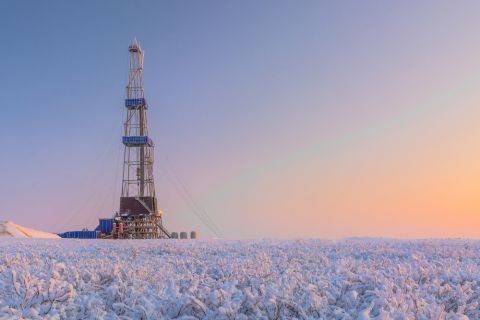It is no secret that many independent producers escalated gas production from existing wells in this year's first half to translate extremely high natural gas prices into staggering returns. Many reported record-breaking cash flows as a result-cash flows that won't be duplicated anytime soon now that prices have settled around $3. This fall, some producers are shutting in portions of their gas production in the Rockies and along the Gulf Coast until prices improve. But if a company speeds up gas production for a time, what does that do to the long-term viability of the reservoir, and the company's ability to report consistent production growth? It turns out that <$iExxonMobil Corp. >, which produces 2.6 billion cubic feet per day, also took advantage of high gas prices last year. These practices may come back to haunt it. In this year's second quarter, the megamajor's gas volumes fell a significant 8% versus the prior year even though big deepwater reserves were starting to flow, notes Houston-based investment-banking firm <$iSimmons & Co. International >. ExxonMobil says 2000 production had been given a temporary boost by a gas-cap blow-down in one of its main fields. Speculation was that it was the Webster Field south of Houston. In August, in response to an analyst's question, ExxonMobil confirmed that it was indeed boosting gas production, but at the Friendswood Field southeast of Houston. Once it decided to do the blow-down, in less than three years the company produced some 200 billion cubic feet of gas from the field, reaching a whopping rate of 340 million cubic feet per day in May 2000. Production is now back to about 15 million cubic feet per day, according to the Houston Chronicle. Gas caps, which overlay the oil zones in many fields, provide the pressure mechanism whereby the oil can be produced. Siphoning off the gas cap for that commodity, a so-called gas blow-down, increases gas production but at the same time, reduces or kills the main source of energy needed to keep the oil flowing. In a sense, ExxonMobil robbed Peter to pay Paul. It took a lot of gas out of the field, but it won't be able to sustain the rate of oil production it once had there. "We do not dispute the validity of the decision to blow-down the gas cap of a 70-year-old field, particularly in the price environment that characterized most of 2000 and the first half of 2001," says the Simmons report. "Acceleration generated staggering economic returns. However, from a physical standpoint, the move is akin to digging under the sofa cushions to find lunch money-it gets you through the day but doesn't provide long-term sustenance." This practice casts further doubt on the gas production numbers tracked by government agencies and Wall Street analysts. And it may mask the true nature of overall U.S. gas production and decline rates.
Recommended Reading
Biden Administration Criticized for Limits to Arctic Oil, Gas Drilling
2024-04-19 - The Bureau of Land Management is limiting new oil and gas leasing in the Arctic and also shut down a road proposal for industrial mining purposes.
Exclusive: The Politics, Realities and Benefits of Natural Gas
2024-04-19 - Replacing just 5% of coal-fired power plants with U.S. LNG — even at average methane and greenhouse-gas emissions intensity — could reduce energy sector emissions by 30% globally, says Chris Treanor, PAGE Coalition executive director.
FERC Again Approves TC Energy Pipeline Expansion in Northwest US
2024-04-19 - The Federal Energy Regulatory Commission shot down opposition by environmental groups and states to stay TC Energy’s $75 million project.
US Orders Most Companies to Wind Down Operations in Venezuela by May
2024-04-17 - The U.S. Office of Foreign Assets Control issued a new license related to Venezuela that gives companies until the end of May to wind down operations following a lack of progress on national elections.




